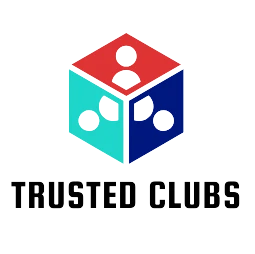Clubs have long been a cornerstone of human interaction, providing people with a sense of belonging, shared purpose, and a platform to connect. From the exclusive gentlemen’s clubs of the 18th century to modern-day hobby groups, the idea of clubs has evolved significantly. Today, the concept of “trusted communities” has emerged as the next stage in this evolution, reshaping how people connect and collaborate in an increasingly digital world.
The Roots of Traditional Clubs

Historically, clubs were formed based on shared interests, professions, or social status. Exclusive membership was often a hallmark of such groups, ranging from literary societies to sports clubs and civic organizations. These traditional clubs served as physical meeting spaces where people could network, share ideas, and unwind.
Some key features of traditional clubs included:
- In-Person Interaction: Members would meet face-to-face, fostering deep personal connections.
- Selective Membership: Joining a club often required referrals or approval from existing members.
- Localized Focus: Most clubs operated within specific geographical areas.
While these clubs provided a sense of exclusivity and camaraderie, they often excluded people based on rigid criteria like class, gender, or profession, limiting their reach and inclusivity.
The Shift Towards Trusted Communities

With the advent of technology and changing societal norms, the limitations of traditional clubs became apparent. The digital age has brought about a new kind of gathering: trusted communities. Unlike their predecessors, these communities prioritize transparency, inclusivity, and trust, allowing people to connect across boundaries.
Key factors driving this evolution include:
1. Technology and Accessibility
The internet has removed geographical barriers, enabling people to join communities from anywhere in the world. Platforms like social media, forums, and dedicated apps allow trusted communities to thrive online.
2. Diversity and Inclusivity
Trusted communities are built on the principles of mutual respect and inclusivity. They welcome members from various backgrounds, emphasizing shared values rather than exclusivity.
3. Trust as a Foundation
Trust is the cornerstone of modern communities. Unlike traditional clubs that often relied on gatekeeping, trusted communities ensure transparency, authenticity, and accountability among members. Ratings, reviews, and verification processes enhance this trust, creating safer spaces for interaction.
4. Hybrid Models
Many trusted communities combine online interactions with in-person events, offering the best of both worlds. Members can engage virtually for convenience and meet physically to build deeper connections.
Benefits of Trusted Communities
The shift from traditional clubs to trusted communities has brought several advantages:
- Broader Reach: Anyone with shared interests can join, regardless of location or background.
- Shared Knowledge: Members can easily exchange ideas and resources online.
- Dynamic Interaction: Real-time communication tools make collaboration seamless.
- Increased Safety: Verification processes ensure members are genuine and trustworthy.
Examples of Modern Trusted Communities
- Professional Networks: Platforms like LinkedIn groups foster career-focused communities.
- Interest-Based Groups: Hobbyists gather on forums or apps like Meetup to share their passions.
- Support Networks: Trusted communities like health forums provide safe spaces for advice and encouragement.
Conclusion
The evolution from traditional clubs to trusted communities signifies more than just a change in structure; it represents a shift in values. Modern communities emphasize inclusivity, trust, and global connectivity, reflecting the needs of a fast-paced, digital world.
By blending the best aspects of traditional clubs with the opportunities provided by technology, trusted communities are paving the way for a more connected and collaborative future. Whether you’re looking to network, share knowledge, or find support, these communities offer a space where everyone belongs.

